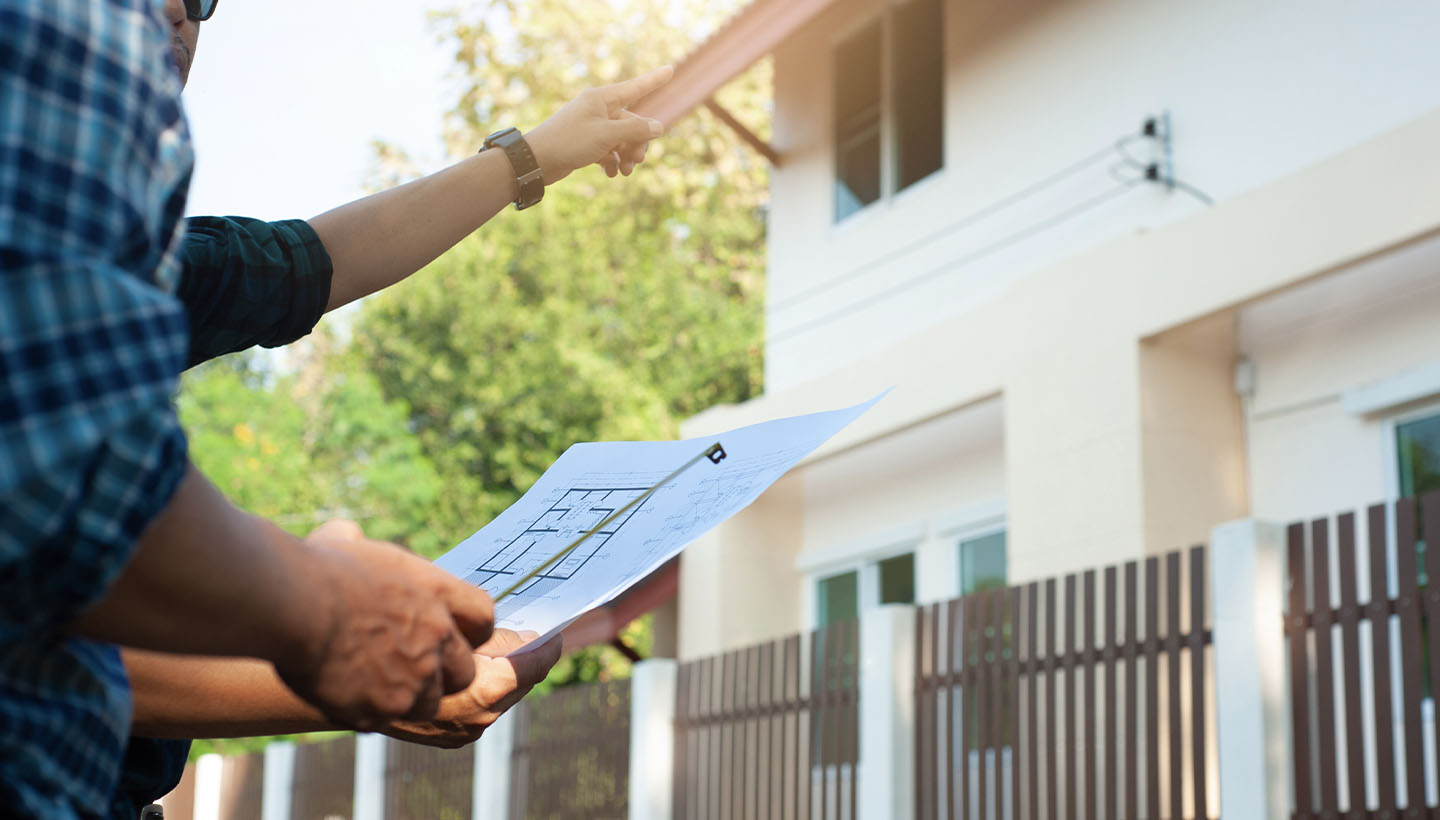
Home Insurance Inspections: What You Need to Know
Many homeowners insurance companies require home insurance inspections before finalizing the details of your premiums. This is common and, thankfully, not overly complicated. There are a number of ways an inspector might approach this task, so here’s what to expect and how you can best prepare.
What is a Home Insurance Inspection?
Just as it sounds, a home insurance inspection is done to determine appropriate home insurance premium. Unlike the home inspection you likely got before purchasing your new home, this inspection is meant to help home insurance companies determine
- potential risks for future claims,
- your home’s replacement cost, and
- calculations for premium costs.
What to Expect During a Home Insurance Inspection
1. Schedule the Inspection
Depending on your insurance company, a home insurance inspector may be sent out to inspect the exterior, the interior, or all aspects of your property. The inspector will contact you ahead of time to schedule and get your consent for the inspection. After that, they’ll arrive on schedule and take photos around your property as they write up a report. The inspection itself could last a handful of hours, depending on the type of property you own.
Like a standard home inspection, these are the areas they’ll be inspecting:
Exterior
- Age and condition of the roof
- Drainage systems like gutters and land grading
- Foundation
- Walkways, driveway
- Chimneys, if applicable
- Excessive foliage that could cause damage (ivy, hanging tree branches, etc.)
Interior
- Condition of basement, attic, or crawlspaces
- Plumbing systems
- Electrical systems
- HVAC systems
- Fire alarms/carbon monoxide detectors
- Fire extinguishers
- Safety features/security systems
2. Get the Inspection Report
Once your inspection is complete, the inspector will leave to write up their report. You’ll get a copy of their findings. If there are any questions or concerns, your insurance agent will reach out with next steps.
3. If You Passed — Say Hello to Your Insurance Policy!
It’s that easy! Your insurance provider will begin or continue your current policy, or they’ll make changes to the policy depending on issues they may have come across in the report. In your best-case scenario, your rates might see a decrease, thanks to making critical home improvements, like replacing those missing shingles on the roof.
4. If You Failed — It’s Back to the Drawing Board
If your house failed its inspection, don’t sweat. Sometimes, an insurance company will offer a window of time to make the changes you need. If you can address and adequately solve those issues, you’ll be good as new and ready to be insured.
Worst case, your insurance provider may decide to cancel your insurance coverage. In this scenario, it’s best to move quickly to replace your coverage, especially if you have a mortgage. If the number of necessary repairs is out-of-hand and no company will cover you, look into a FAIR Plan. These plans are state-subsidized, so they’ll vary depending on where you live, but they’re designed to protect homeowners with tricky properties.
Keep in mind: if you’re planning on applying for a FAIR Plan, you’ll have to prove you’ve been denied several private home insurance plans first. This is a last resort, but still an option if you find yourself in a real pickle.
Tips For a Successful Inspection
The best way to prepare for a home insurance inspection is to make like a home inspector…and inspect! Once you have worked to fix some of the quirks in your house, make sure to gather documents or other information relevant to your renovations, so you can share them with your inspector ahead of the inspection.
Inspection Checklist
Chances are, whether you just purchased this home or have been living in it for many years, you have an idea of where your problem areas lie. Tackle whatever those little issues are first — whether it’s a clogged gutter, broken tree branches, or that leaky faucet! Then, use this checklist to trace a home inspector’s steps:
- Clear your yard and outer perimeter of trash cans, foliage, or other inhibitors.
- Remove clutter and barriers to areas under sinks, in basements, etc.
- Check for exterior damage on siding, roof tiles, gutters, caulk.
- Replace bulbs and loose outlets, and check for other electrical issues.
- Fix a running toilet, and check pipes, walls, and ceilings for leaks.
- Test all window and door seals and locks.
- Look for signs of mold, mildew, and water damage especially in sneaky areas like your basement.
- Make sure your fire and carbon monoxide detectors are running and up-to-date.
Remember: Never attempt to fix major issues on your own. It’s more important to be aware of issues in the home and prepare to have them corrected by a professional than to risk your safety attempting to do your own fixes. Plus, if you do them wrong, that just creates more problems for your inspector, and your insurance plan.
What To Have On-Hand For an Insurance Inspection
If you’ve made recent renovations, it’s a good idea to provide documentation of those changes, especially if you’re aiming to upgrade your insurance plan and (hopefully) lower your premiums. The better prepared you are for your home inspection, the better your chances!
Home Insurance Inspection FAQs
What is the purpose of a home insurance inspection?
The purpose of a home insurance inspection is to provide your home insurance provider with the information they need to determine your premiums. This information can include the age, condition, and replacement costs of your home, as well as any risk factors that may cause future claims.
How often are home insurance inspections conducted?
Home insurance inspections aren’t always necessary, so their frequency varies — but you should expect them in a few scenarios. If you live in an older home (think 40+ years old), haven’t had an insurance inspection in 10 or more years, or are switching insurance companies, these are all grounds for an inspector to come check things out. Again, these are done at the discretion of your insurance company.
What happens if the inspector finds something wrong during the inspection?
If your inspector finds something wrong (i.e., additional liabilities) during your home insurance inspection, your insurance provider might increase your rates or otherwise adjust your policy to account for these issues.
If there’s enough wrong that your home fails the inspection, your insurance company might enact a policy that requires you to repair the issues within a certain window of time. But, worst case scenario, they could cancel your policy altogether.
What happens if I am not home during the inspection process?
If your insurance company sends an inspector out to conduct an exterior inspection, have no fear! Unless you need to let them into the property or gated community, they’ll be able to do their job without you.
In the event you aren’t around for an interior inspection, you could be in trouble! A home inspector will never enter your property without your permission. Your insurance company may issue a cancellation or choose not to renew your policy if you can’t be reached at the scheduled inspection times, so do your best to be prepared for them in advance.
Do I need to prepare my home for the inspection?
It’s a good idea to prepare for a home inspection by making any necessary renovations that you know of beforehand. You can also prepare documents like your home’s floor plan with square footage, documentation of renovations and upgrades you’ve made, and any other details that may not be immediately evident to your inspector.
Get a Real Taste For Home Inspection
Turns out, home inspection is a little more interesting than you thought, right? We’ve been there. Learn more about the career, and what it takes to become an inspector yourself. Hint: it’s more doable than you think, and way more fun.




